It happens around the world: a woman walks down the street and ends up the object of unwarranted catcalls and whistles. These comments are often based off physical appearances, forcing women to doubt their outfits and, sadly, their figures.
The men doing it might say it's a compliment, but to most women, it is far from it.
One young woman said enough is enough.
Meet Debi Hasky. While living in Panama, the 24-year-old was inspired to turn her anger to art that fights harassment.
Hasky, born and raised in Miami, Florida, created a series of illustrations, "Call Out Cat Calls" and, through her artwork, tries to promote awareness of the unwelcome attention many women receive.
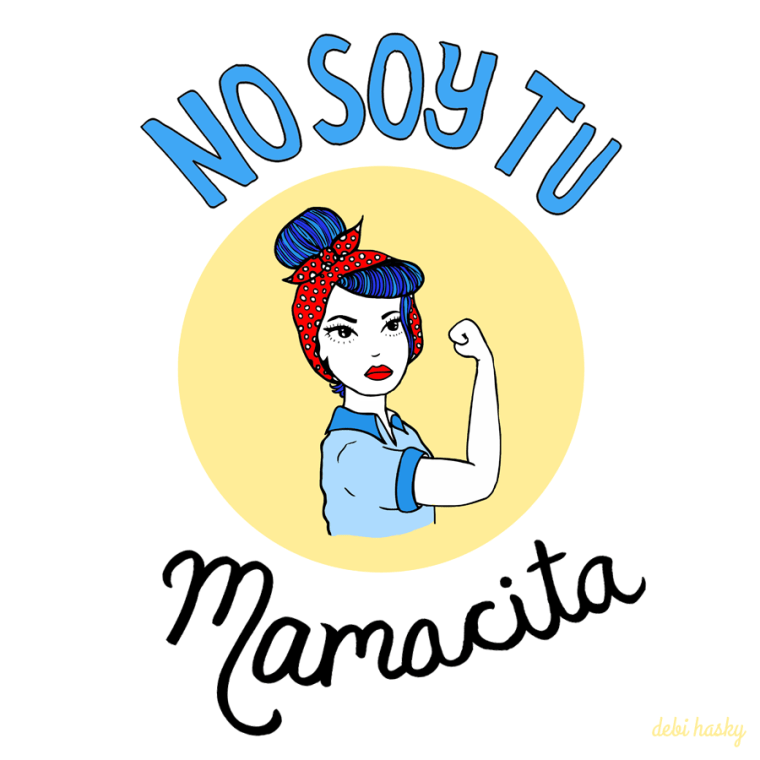
Hasky was developing an idea to enter a scholarship contest for the Istituto Europeo di Design (IED) when a catcalling experience inspired #CallOutCatCalls. Hasky submitted three different images to the context which centered on the theme “Design for a Better World.”
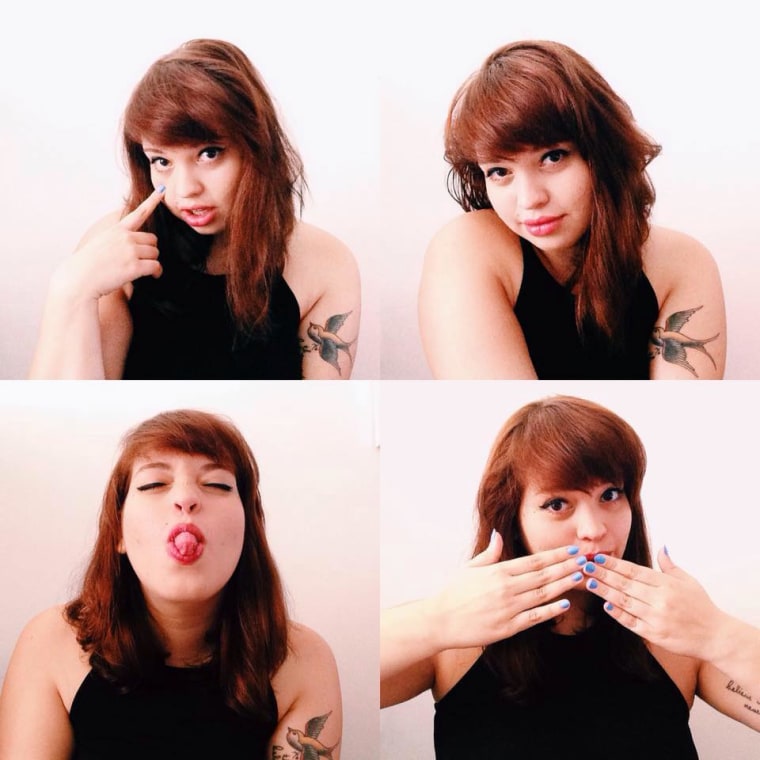
Hasky has moved to Barcelona, Spain, to study graphic design at IED, courtesy of the scholarship she was awarded. She tells NBC Latino she is looking forward to keep showing, and reminding, women that they are powerful and that strength is beautiful, in any shape and form.
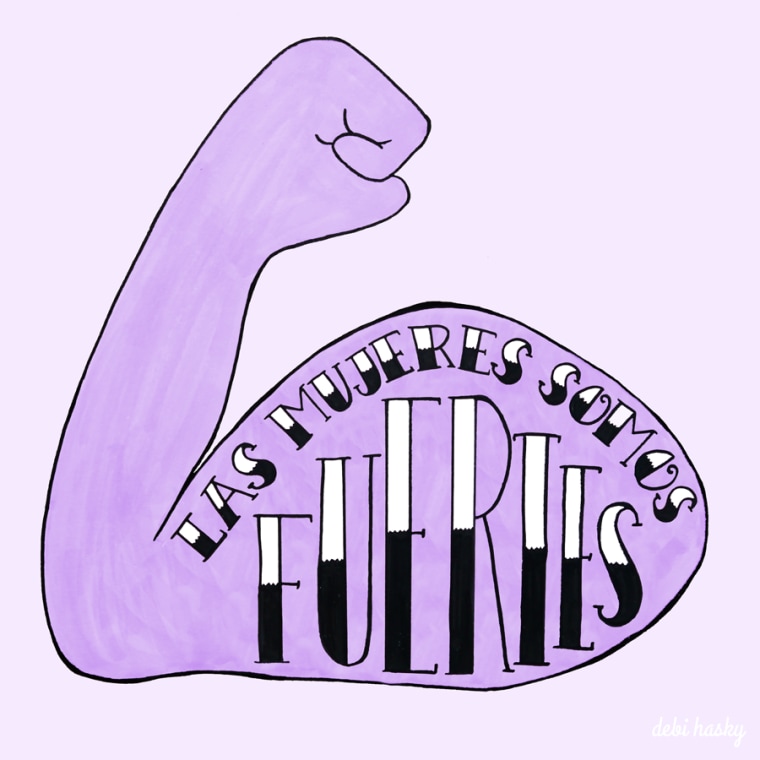
NBC Latino spoke to Debi Hasky via email about her project; below is the condensed interview.
NBC Latino: What was the inspiration for the illustrations? Is there a particular instance of harassment that stands out when thinking about the inspiration for the illustrations?
Debi Hasky: A group of street workers in Panama were shouting at me, “Mamacita!” I became so irritated that I yelled back, “No soy tu mamacita!” ("I am not your Mamacita!"). One of them replied, “Así me gustan, toda bravita.” ("That's how I like them, all feisty.")
This whole interaction just didn’t sit well with me. I went home that day so upset and frustrated. I wrote down the phrase, “No soy tu mamacita”, and the ideas just started flowing out. Through conversations with friends who have experienced similar forms of street harassment and the unbearable discomfort it produces inside us, I went ahead and created three designs for the scholarship contest and turned them in.
NBC Latino: Why did you choose to develop the series in Spanish rather than English? Do you plan to develop images in English?
DH: The inspiration for this series came to me in Panama so it didn’t make sense to me to translate it into English. Everything that was shouted or said at me was mostly in Spanish, and creating this series has helped me express the things I wish I had shouted back at that time.
With the designs in Spanish, I am able to connect with the Latino audiences about this issue in a way that I haven’t been able to before. However, I am developing illustrations in English as to broaden my audience and keep this conversation going.
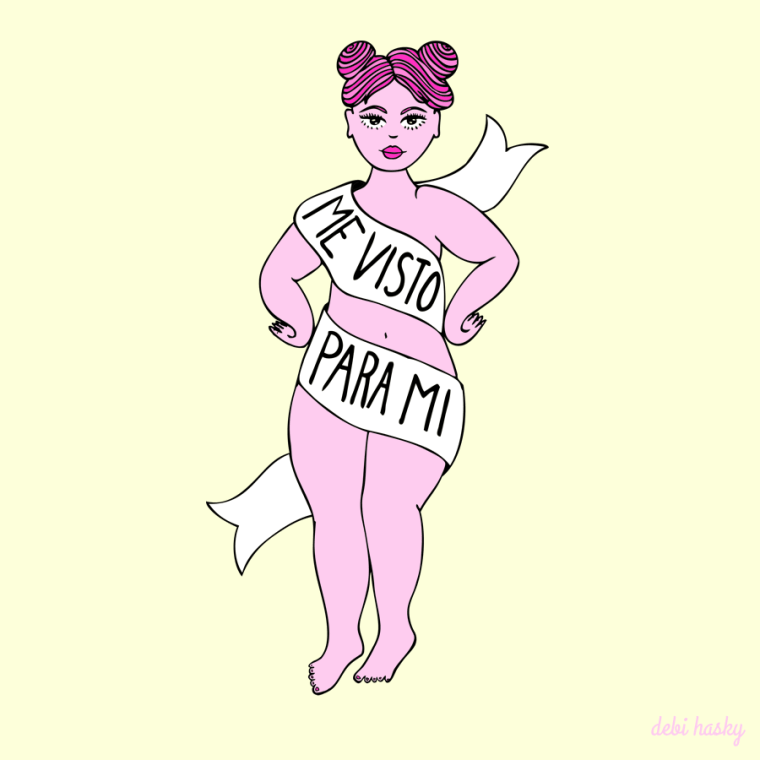
NBC Latino: What do you hope this campaign does for people, both women and men? Why do you think many women can relate to your images?
DH: With this series, I hope to provoke a conversation about street harassment, especially in Latin America where catcalling is still a very present issue. As long as we keep the conversation going about these issues, more people can be informed and we’ll be able to understand each other.
It is a sad reality that so many women have experienced street harassment in some form or another. A few women have commented that they actually like the catcalling, that it makes them feel empowered, but I have no way of understanding that. Being treated as a walking sexual object has never made me feel empowered or good about myself. I felt helpless. I didn’t feel like a person.
NBC Latino: Did you ever think the illustrations would be so popular?
DH: I didn’t expect any of this to happen! For a long time I never thought my voice mattered, that my illustrations would never be seen or even taken seriously. I am naturally pretty shy and drawing has always been the most natural way for me to express myself. A project that started out as a personal frustration against catcalling and street harassment has led me down a path I could never have imagined. All of the lovely messages and comments that I have received fill my heart with joy.
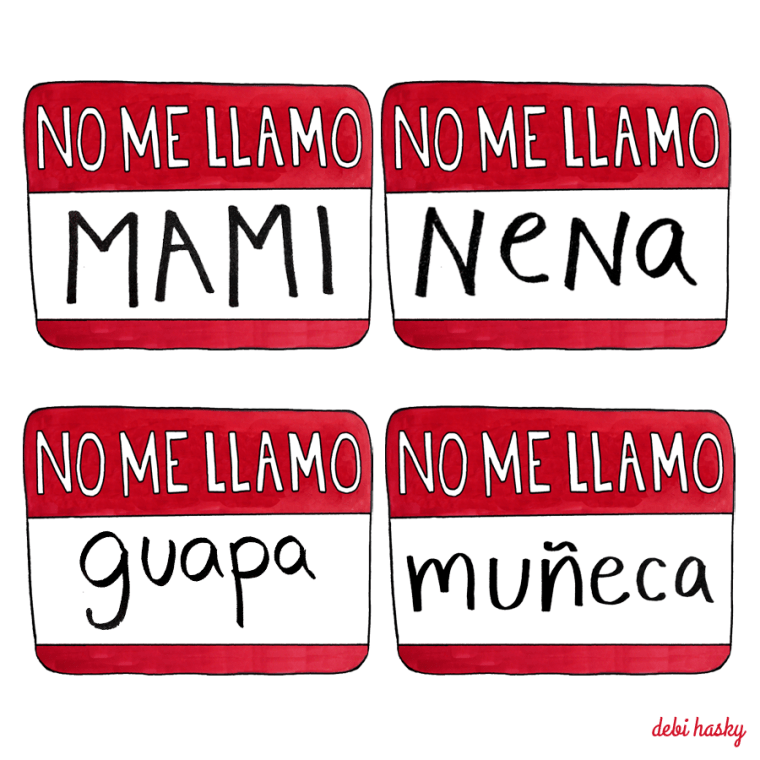
NBC Latino: Have you gotten any negative feedback?
DH: I have received many negative comments and I’ve seen the word “feminazi” thrown around, but that’s part of it! The conversation is happening. I am a positive person, but it’s hard not to let a few of these negative comments get to me, which is something I am learning how to handle. A dear friend advised me, “For every negative comment, there are 10 more positive ones; keep that in mind.”
NBC Latino: What has been the reaction of your family and friends?
DH: I have received an overwhelmingly positive response from my family and friends everywhere! My family is Panamanian and I grew up surrounded by strong, independent women who have always encouraged me in any venture I have pursued. They are and have always been my biggest cheerleaders and for that I am forever grateful.
NBC Latino: Where do you hope to take this project?
DH: I didn’t anticipate the positive response that I received from publishing the series, but I am very thankful. For now, I am still developing this project and hope to keep connecting with the audience and informing people about these issues.
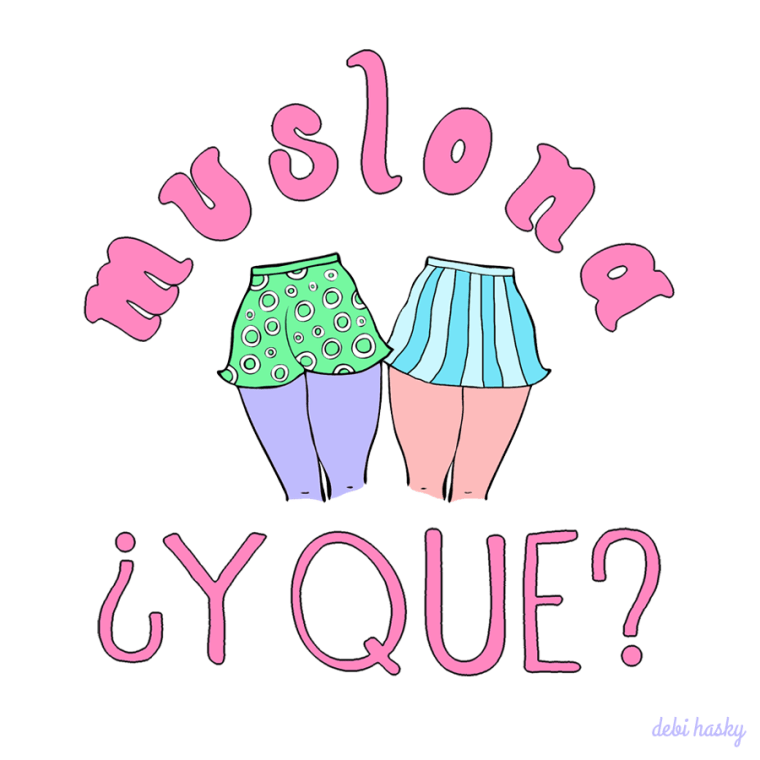
NBC Latino: Do you have a favorite illustration? If so, which one and why?
DH: If I had to choose one, I would say “Muslona, Y QUE?” because that was one of the things I was called most. It’s basically like saying, “I know I have big thighs, so what?”
If you want to know more about Hasky, visit her website, Instagram, Tumblr, and Facebook
